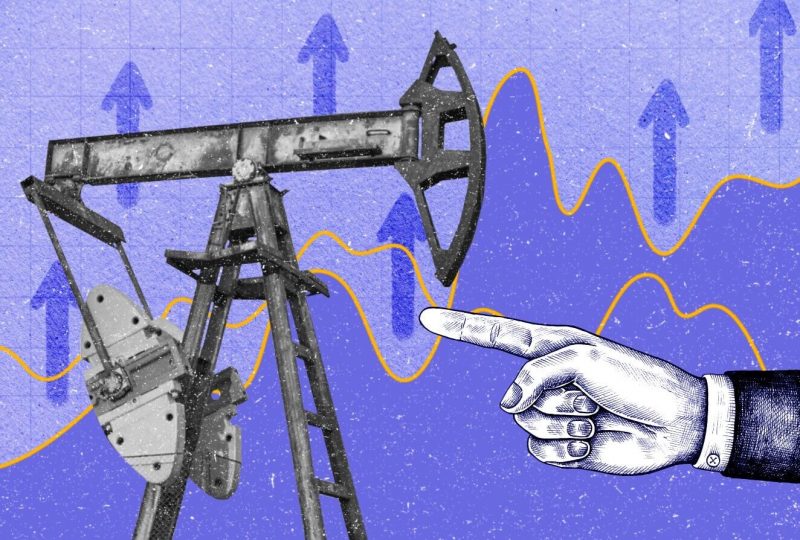Tanker Stocks Skyrocket Amid Global Trade Routes Shake-Up. Experts Envision Even Bigger Gains Ahead.
Feb 17, 2023

Tanker ships contracted to transport oil overseas have rarely experienced such a period of high demand. Even after tanker companies experienced significant price rises, their stocks may still have room to grow.
The conflict between Russia and Ukraine shook oil markets, sending crude prices to 14-year highs. Oil producers were the most visible benefactors of high prices, but the biggest winners may have been a segment of smaller and less-known companies: oil tankers. Ardmore Shipping and Scorpio Tankers, for example, quadrupled last year.
Analysts believe the surge may continue since fresh sanctions have diverted the flow of Russian oil to more distant ports. "This is a cycle that has some life," says Evercore strategist Jonathan Chappell.
The latest developments in the industry aren't simply due to the usual commodity booms and slumps that have happened before. The war in Europe has brought about more drastic changes in shipping routes, which Chappell believes will remain even after peace is eventually restored. And also, despite the surge of shipping stocks, they are still gradually recovering from their devastating lows caused by the pandemic.
2021 was a difficult year for oil tanker companies, as rental rates plummeted and order books reached multi-decade lows due to the Covid-19 restrictions, which had diminished global demand for oil. However, now that countries have started to come out of the pandemic, there has been an increase in need.
Nevertheless, the Ukrainian conflict was undoubtedly the major catalyst for rerouting oil trade routes. Before sanctions were imposed, many countries had already restructured their import paths, while Russia started trading more with India and China than with Europe and America. On December 5th, an embargo went into effect, barring Russia from shipping crude oil to European nations; then, in February, restrictions and price caps were expanded to include other energy products such as diesel or gasoline.
The sanctions have forced Russia to sell to new clients, the majority of whom are located far further away than Europe. Analysts predict that, in addition to India and China, nations in South America and Africa will expand their imports of Russian gasoline in the coming months.
The rising demand for long-distance tankers coincides with a relatively flat supply of tankers, indicating that demand is surpassing supply. This has drastically increased rates, causing the daily rental fees for certain types of vessels to skyrocket.
Understanding the concerns of those investors who have witnessed soaring stocks, Chappell believes it would be a misstep to exit the market. He acknowledges that shipping has been historically cyclical, and these small-cap equities are known for their volatility, yet he encourages holding onto them. "Is It Done? No, It's Only Just Begun," he wrote in last month's note.
He described the Russia-Ukraine conflict as "a generational geopolitical event that is likely to change seaborne flows of the world's still most important commodity for years" and stressed that it hasn't yet fully played out.
According to Chappell, the ban on fuel shipment from Russia imposed on February 5th may prove even more impactful than the initial ban on Russian crude oil exports. Unlike crude, China and India don't import as much fuel, such as diesel, due to their own refineries. This means that for Russia to find new fuel markets, it will have to embark on even pricier international journeys. For large tankers, rates jumped 35% in the first week following the fuel ban.
A growing "shadow fleet" of Russian tankers may transport oil without regard for price caps. In theory, this would create competition for public corporations, which must act ethically and follow the sanctions. But, according to Chappell, the shadow fleet is mostly made up of extremely old ships that don't add to overall supply and can't compete with the newer ships employed by most enterprises.
To date, tanker companies prioritizing transporting fuels have outshone those focusing on crude. This is likely because fuel sanctions may produce more market disruption compared to other restrictions.
Scorpio and Ardmore were two of the most successful fuel-carrier companies in 2022, with their stock prices rising by 280% and 390%, respectively. Teekay Tankers, known for its midsize tankers, has seen a tremendous increase of 245%.
Stocks of crude tanker companies, such as Euronav, have performed well but by a smaller margin. Euronav stock has gained 60% since last year, and DHT Holdings shares have doubled.
Chappell believes that both types of tanker firms have a capacity for growth, with crude carriers potentially catching up to fuel carriers over time. Euronav is one of the stocks he believes will outperform the market, rising to $24 from $16.78 for a 43% gain. He also favors Scorpio, which he forecasts will gain 36% more.




